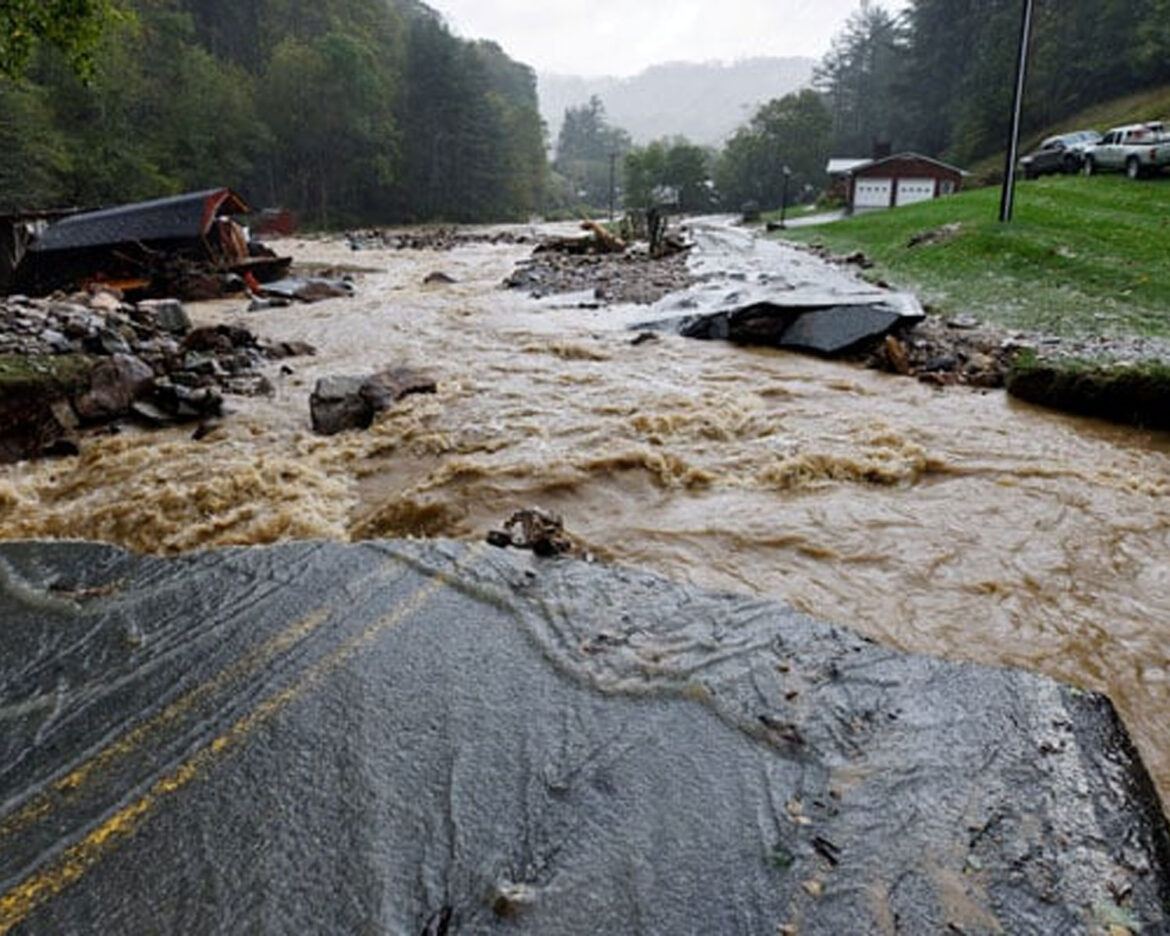Hurricane Helene wreaked havoc across the southeastern United States on Friday, claiming 33 lives and causing widespread destruction as it swept through Florida, Georgia, and the Carolinas. Millions of homes and businesses were left without power after Helene made landfall as a Category 4 hurricane near Florida’s capital, Tallahassee.
The storm, which weakened to a tropical storm as it moved north, brought “historic and catastrophic flooding” according to the National Hurricane Center. The agency warned of flash floods in major cities like Atlanta, Georgia, and across both Carolinas. In parts of the Appalachian mountains, rainfall reached up to 12 inches, with isolated areas seeing as much as 20 inches.
Massive Damage Across Florida and Georgia
In Perry, Florida, near the storm’s landfall, power outages were widespread, and a local gas station was flattened by the storm’s force. Residents like Larry Bailey, 32, hunkered down during the terrifying ordeal. “It was real scary at one point. I wasn’t sure if my house was going to make it,” Bailey shared, after sheltering with his family through the night.
Georgia Governor Brian Kemp confirmed 11 fatalities in his state, including an emergency responder. In Valdosta, Georgia, over 115 heavily damaged structures were reported, with people trapped inside. Pinellas County in Florida confirmed five deaths, while in Charlotte, North Carolina, one person was killed when a tree fell on a home.
New Normal of Extreme Weather?
The devastation from Hurricane Helene adds to a month marked by global weather extremes. While Asia is grappling with Typhoon Yagi and Europe faces Storm Boris, severe flooding continues in Africa’s Sahel region. Experts caution that it is still too early to definitively link these events to climate change, but many believe such extreme weather may be part of a new normal.
“We’ve got to start wondering: is this going to happen every year?” said Curtis Drafton, a volunteer helping with search and rescue efforts in Florida. “We keep talking about once-in-a-lifetime storms, but we had something similar just last year.”
In some regions, storm surges of up to nine feet were reported, further exacerbating the damage to homes and infrastructure. Residents in Atlanta resorted to using buckets to remove floodwater from their homes.
President Biden Urges Caution Amid Recovery Efforts
More than 4.3 million customers were left without power across Florida, Georgia, and the Carolinas, as utility companies worked to restore services. Ahead of the storm, President Joe Biden and local officials had urged residents to evacuate, warning of potentially “unsurvivable” conditions.
Florida Governor Ron DeSantis mobilized the National Guard to assist with rescue operations and recovery efforts, stressing the need for Floridians to remain cautious in the aftermath of the storm.
As recovery efforts ramp up, authorities continue to assess the full scope of Hurricane Helene’s impact on the southeastern United States, with many left wondering what extreme weather lies ahead in the coming years.



